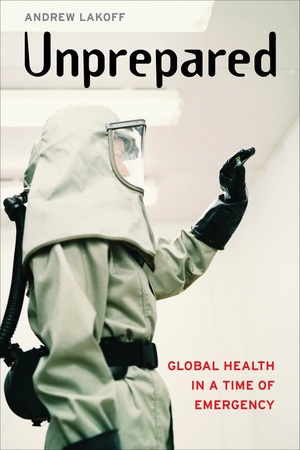A book that we forgot to read, but it may help (at least for the next time).
This book tells the story of how the fragile and still-uncertain machinery of global health security was cobbled together over a two-decade period, beginning in the early 1990s. It is neither a heroic account of visionary planning by enlightened health authorities, nor a sinister story of the securitization of disease by an ever-expansive governmental apparatus. Rather, it is a story of the assemblage of disparate elements— adapted from fields such as civil defense, emergency management, and international public health—by well-meaning experts and officials and of response failures that have typically led, in turn, to reforms that seek to strengthen or refocus the apparatus.9 The analysis centers on the ways that authorities—whether public health officials, national security experts, life scientists, or other privileged observers—conceptualize and act on an encroaching future of disease emergence. This uncertain future can be taken up and made into an object of present intervention according to multiple rationalities: as an object of probabilistic calculation, as a specter that must be avoided through precautionary intervention, or as a potential catastrophe that cannot be evaded but can only be prepared for.10 In the chapters that follow, we see how these various logics come into tension or combine in response to actual and anticipated disease emergencies.And the key message
The widely acknowledged failure of global health security to adequately manage the Ebola outbreak led to multiple inquiries, commission reports, and recommendations for reform, but it did not put in question the strategic logic underlying the framework. Rather, reformers raised the question of how to better meet the demand for preparedness in time for the next global health emergency. As an internal World Health Organization (WHO) report warned, the frequency and magnitude of such events was increasing but “the world is not adequately prepared to respond to the full range of emergencies with public health implications”—whether disease outbreaks, natural disasters or violent conflict. The report concluded that WHO’s response to Ebola and other recent emergencies “lacked the speed, coordination, clear lines of decision making and dedicated funding to optimize implementation, reduce suffering and save lives.” Given the scale and complexity of anticipated future emergencies, it advised, “WHO must substantially strengthen and modernize its emergency management capacity.”So what? We have to confront right now the emergency and WHO reform is still pending...
